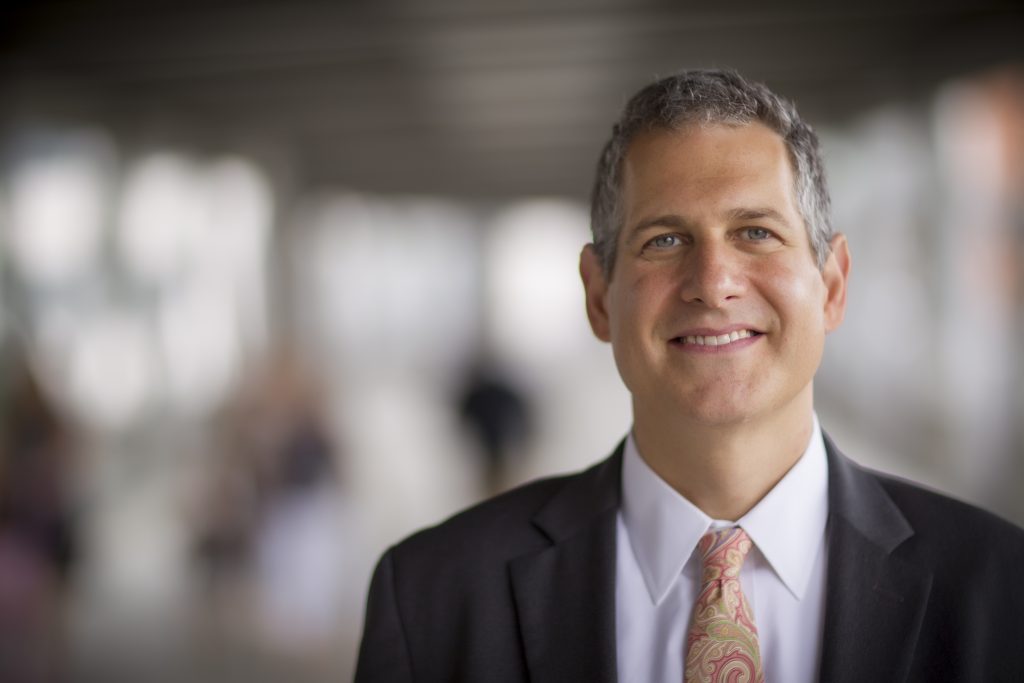In a publication in JAMA, a University of North Carolina Lineberger Comprehensive Cancer Center physician-researcher has detailed cancer treatment guidance to balance cancer patients’ treatment and infection risk in light of the COVID-19 pandemic.

Ethan Basch, MD, MSc, chief of oncology in the UNC School of Medicine Department of Medicine and Richard M. Goldberg Distinguished Professor in Medical Oncology, and co-authors described a framework for physicians making cancer care decisions amid the pandemic.
“Oncology care providers care deeply about patients,” Basch said. “We have strived to retain the humanity and compassion of practice despite the new barriers between us of masks and telemedicine. We won’t know for a long time what the impact of practice changes were during this time, but we hope the ultimate result will be protecting patients with minimal harms to outcomes.”
Basch said oncologists have made “profound” changes in how they practice in the hospital and beyond, including shifting in-person visits to virtual visits and postponing vital procedures whenever possible.
“All of this is in service of keeping our patients and providers out of harm’s way, which is to say out of health care contexts in which they might be exposed to the virus,” Basch said.
The viewpoint provides a framework for planning care based on four categories: care that is not time sensitive and can be delivered remotely; care that cannot be delivered remotely but for which treatment omission or delays would have a marginal effect on the quality or quantity of life; care in which a delay would have a moderate clinically important adverse influence on quality of life or survival; and treatment that has the potential to cure and cannot be safely delayed.
The authors also recommend that physicians need to consider the current capacity of the local health care system to care for patients.
Basch applauded the work of UNC Health and UNC Cancer Care leadership and staff in planning the pandemic response.
“A broad leadership group in the health system has worked tirelessly to assure we can test patients for virus, provide masks and other PPE where needed, and have plans for covering the needs of patients wherever the future may take us,” Basch said.
“For cancer care, Dr. Hanna Sanoff has been an incredible clinician leader, organizing and communicating efforts for the cancer hospital, and we are all deeply grateful to her for her dedication at this challenging time. We are also grateful to the nurses in the infusion centers who continue to care for our patients, and to all who continue to come to work every day to make sure our patients receive the best care possible.”
Authors
Co-authors include Deborah Schrag, MD, MPH, and Dawn L. Hershman, MD, MS.
